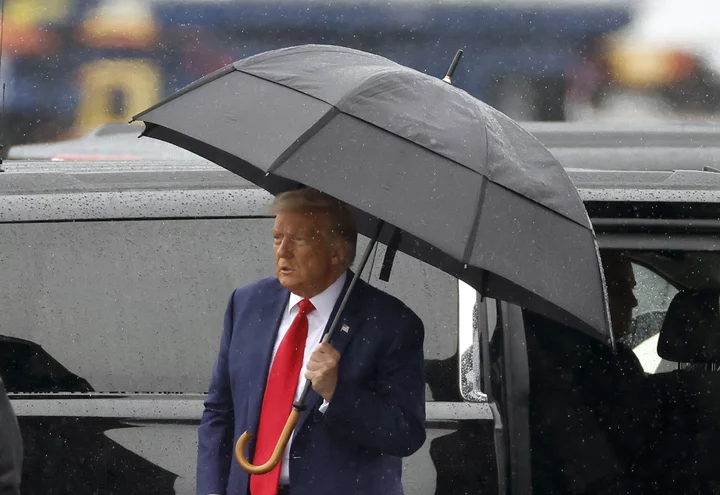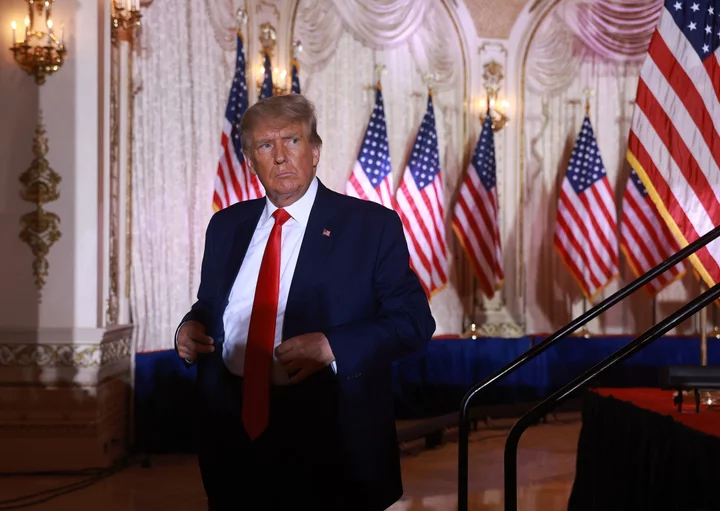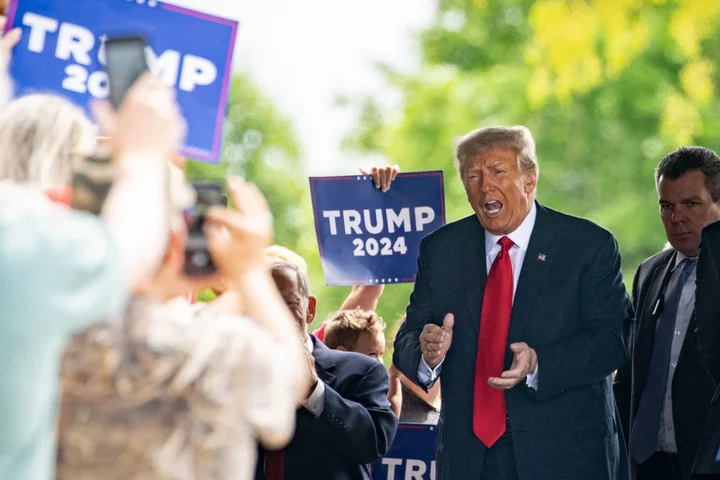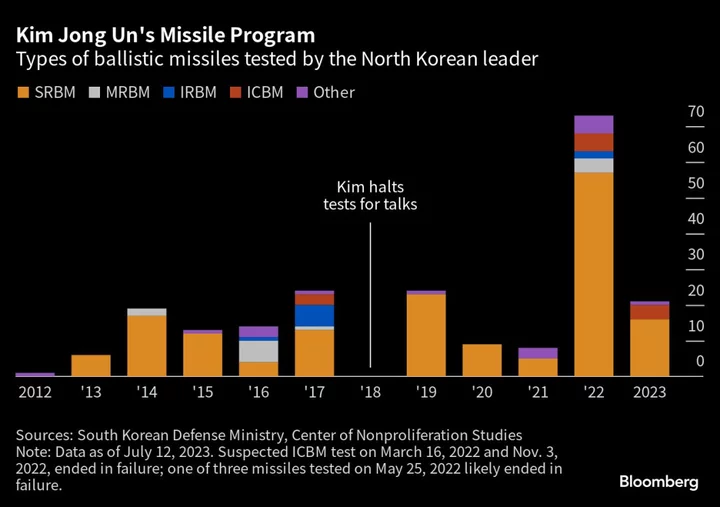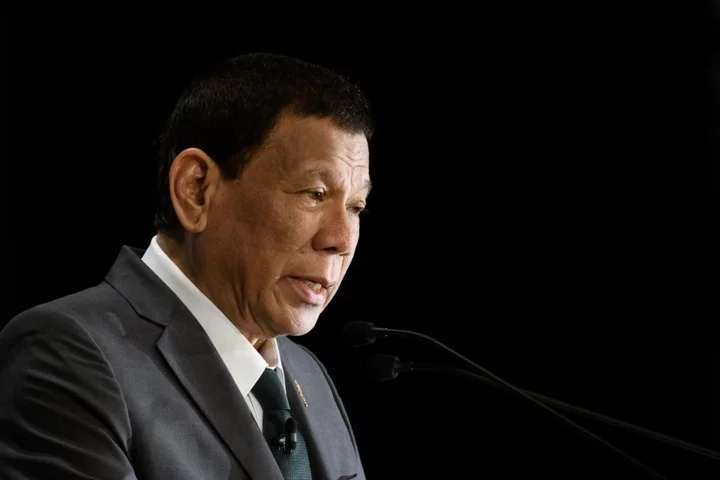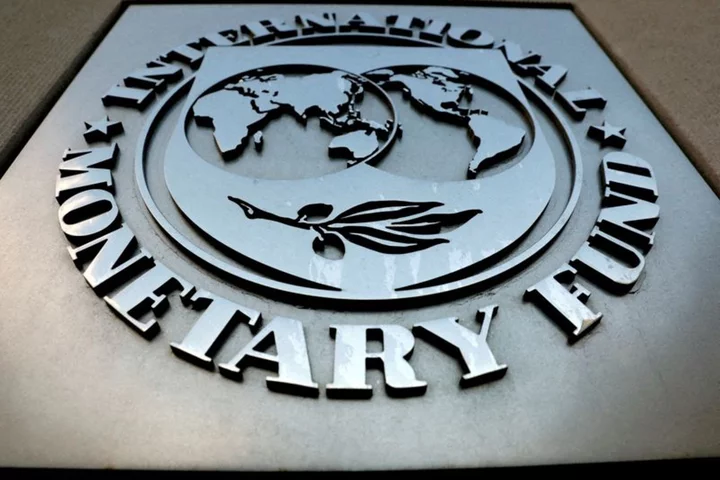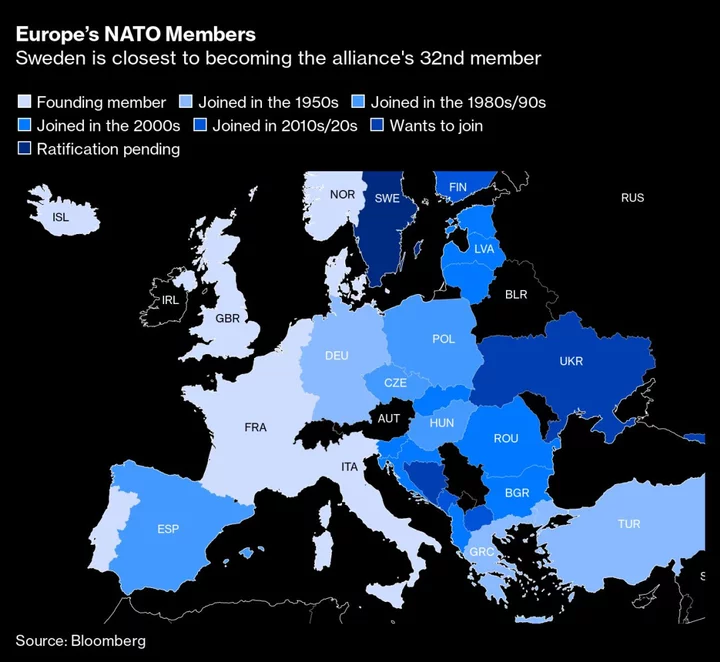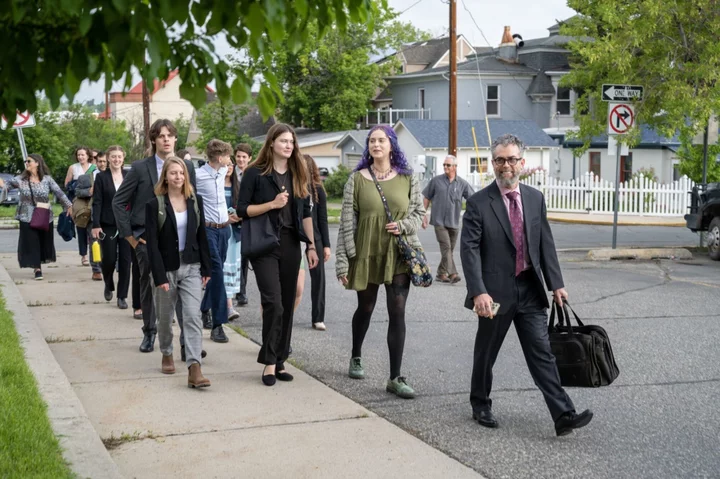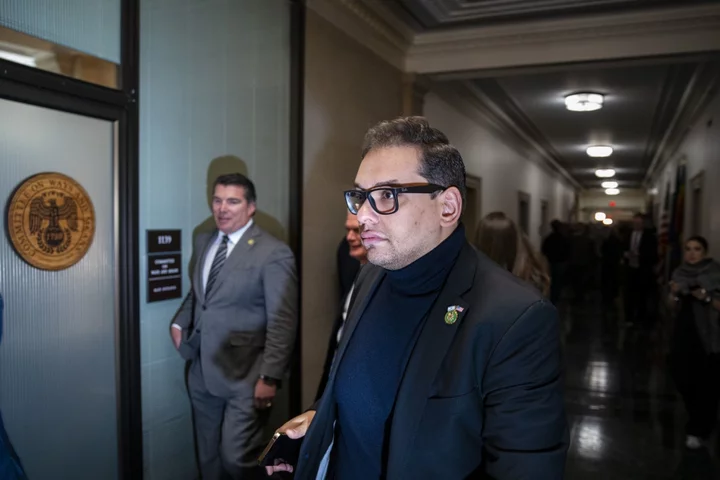The US Justice Department wants a Jan. 2, 2024, jury trial on charges that former president Donald Trump criminally conspired to obstruct the 2020 election.
Trump is likely to oppose the schedule proposed by Special Counsel John “Jack” Smith’s office in a court filing on Thursday. The former president’s lawyers already signaled that they’ll argue for a longer time line, citing the complexity of the case and Trump’s crowded legal and political schedule as he seeks a return to the White House. Trump’s response is due Aug. 17.
US District Judge Tanya Chutkan in Washington is expected to set a trial date at an Aug. 28 hearing. Trump has pleaded not guilty to the charges.
A January trial would make the Washington case the first of Trump’s three pending criminal cases to go before a jury. It also would overlap with the third anniversary of the Jan. 6, 2021, attack on the US Capitol by Trump’s supporters — a key event in the prosecution time line — and the Jan. 15 Republican caucus in Iowa.
Prosecutors estimated needing “no longer than four to six weeks” to present their case. That doesn’t account for the time needed to select a jury at the start or for Trump to put on his defense.
‘Speedy Trial’
“A January 2 trial date would vindicate the public’s strong interest in a speedy trial — an interest guaranteed by the Constitution and federal law in all cases, but of particular significance here, where the defendant, a former president, is charged with conspiring to overturn the legitimate results of the 2020 presidential election, obstruct the certification of the election results, and discount citizens’ legitimate votes,” prosecutors wrote.
They argued that their proposed schedule would give Trump’s legal team a reasonable amount of time to lodge early challenges to the indictment — they pointed out in a footnote that Trump attorney John Lauro had already gone on TV to talk about the motions they planned to file — and review all of the evidence before trial.
Read More: Trump Pleads Not Guilty to Charges of Obstructing Election
Trump’s litigation calendar is already jamming up his 2024 presidential campaign. He has two trial dates in criminal cases early next year. In March, he faces New York state charges that he falsified business records in connection with hush money payments to an adult film star before the 2016 election. In May, he will face federal charges in Florida that he mishandled state secrets after he left the White House and tried to obstruct government efforts to retrieve classified material.
Atlanta-based District Attorney Fani Willis is set to announce a decision in the coming weeks on whether she’ll indict Trump on charges related to the 2020 election. He’s also involved in multiple civil cases, both as a plaintiff and as a defendant. A trial is scheduled for January in New York in writer E. Jean Carroll’s defamation case against him.
In the Florida case, also brought by Smith’s office, Trump had unsuccessfully argued to delay setting a firm trial date and to push the schedule past the November 2024 general election. Prosecutors had asked for a Dec. 11 trial, but US District Judge Aileen Cannon ruled that was too fast.
During Trump’s Aug. 3 arraignment in Washington in the 2020 election case, his lawyer Todd Blanche argued that the notion that a trial could happen within the standard time frame was “somewhat absurd” given the scope of evidence they’d have to comb through in preparing his defense. Federal law would require a trial within 70 days unless the judge says otherwise.
Prosecutor Thomas Windom said at the time that Trump’s case, “just like any other case, will benefit from normal order, including a speedy trial.” He said that the government was prepared to quickly turn over “a substantial volume” of evidence once the judge signed off on what’s known as a protective order — restrictions on how both sides can handle and share evidence.
Prosecutors proposed a protective order that they said was consistent with language “commonly used” in federal cases in Washington. They argued that limits on Trump’s ability to publicly discuss evidence were “particularly important” given his history of posting online about “witnesses, judges, attorneys, and others associated with legal matters pending against him.”
Trump’s lawyers objected to the government’s version as too broad and an infringement of his First Amendment free speech rights. They want the judge to narrow the categories of information that he’s barred from talking about. Chutkan is set to hear arguments on Aug. 11.
The case is US v. Trump, 23-cr-00257, US District Court, District of Columbia (Washington, DC).
(Updated with additional information from the filing and background.)

